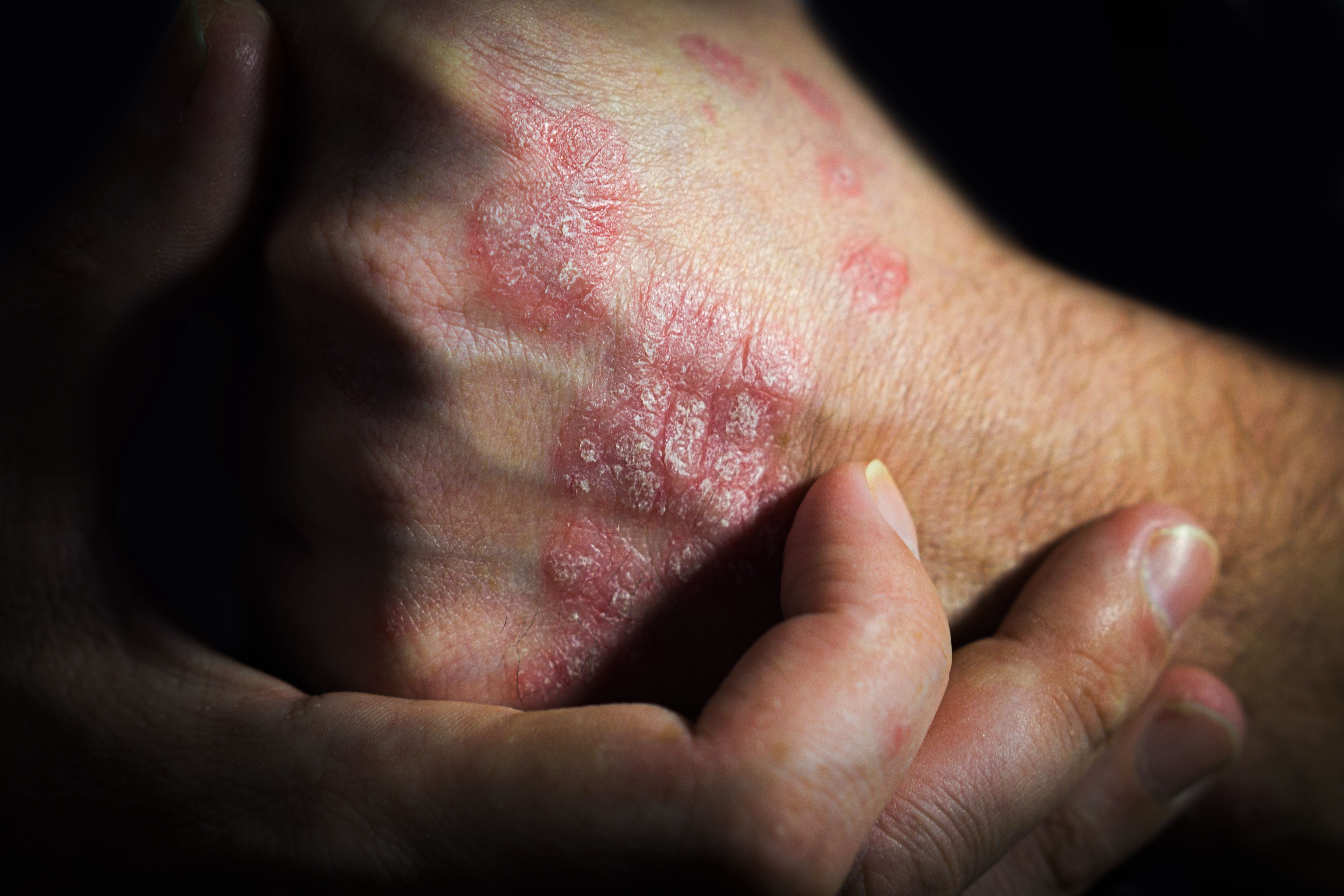In patients continuing treatment with SB17 (Samsung Bioepis), a proposed biosimilar to Stelara, patients continuing ustekinumab (Stelara; Janssen Immunology), and those switching from ustekinumab to SB17, the efficacy, safety, and immunogenicity among the groups were comparable for up to 52 weeks, according to an abstract presented at the 2024 American Academy of Dermatology Annual Meeting being held from Mach 8 to March 13, 2024.1
Previously, investigators had reported on the biosimilarities between the 2 drugs up to 28 weeks and presented 2 abstracts on analytical assessments of SB17 and biosimilarity in pharmacodynamics, pharmacokinetics, and clinical efficacy for moderate-to-severe plaque psoriasis.1,2
In the current study, investigators compared the long-term data of SB17 vs ustekinumab, including switching, for individuals with moderate to severe plaque psoriasis. Treatment was randomized for either 45 mg of SB17 or ustekinumab subcutaneously at weeks 0, 4, then every 12 weeks up to 40 weeks, according to the abstract.1 At week 28, treatment for individuals was randomized to either continue their study drug or switch from ustekinumab to SB17. The efficacy, safety, and immunogenicity were all assessed by investigators.1
There were 481 individuals included in the re-randomization of treatment, with 237 continuing SB17, 122 continuing ustekinumab, and 122 switching from ustekinumab to SB17, according to the abstract. The percentage change from baseline was comparable at 95.8%, 94.5%, and 95.6%, respectively, at 52 weeks according to the Psoriasis Area and Severity Index. Furthermore, the other efficacy endpoints, which included the Physician’s Global Assessment and Dermatology Life and Quality Index, were also comparable between the groups, according to the authors of the abstract.1
Key Takeaways
- Efficacy, safety, and immunogenicity were comparable between SB17, Stelara (reference product), and those switching from Stelara to SB17 for up to 52 weeks.
- Rates of side effects and anti-drug antibodies were comparable across groups.
- Samsung Bioepis and Sandoz have an agreement for commercializing SB17 in certain territories, including the US (expected in February 2025, pending FDA approval).
The authors also reported that the incidence of treatment-emergent adverse events was comparable between the groups at 16.5% for the SB17 group, 23.8% for ustekinumab, and 13.9% for those who switched. Furthermore, the incidence of overall anti-drug antibodies after transition were also comparable at 5.6%, 6.7%, and 5.1%, respectively.1
In September 2023, Sandoz and Samsung Bioepis came to an agreement with the exclusive rights to commercialize SB17 in the United States, Canada, and other countries. Furthermore, according to a press release from Samsung Bioepis, the US license period will start in February 2025, with a biologic license application for the drug under review by the FDA, and if approved, the drug will be commercialized by Sandoz.3,4
The reference medication is a monoclonal antibody to interleukin-12/23 for the treatment of autoimmune disorders that include Crohn disease, plaque psoriasis, psoriatic arthritis, and ulcerative colitis.3
References
Feldman S, Narbutt J, Girolomoni G, Brzezicki J, et al. Clinical similarity of SB17 (proposed ustekinumab biosimilar) to reference ustekinumab in patients with moderate to severe plaque psoriasis: randomized double-blinded phase III, 52-week results. Presented at: American Academy of Dermatology 2024 Annual Meeting. Accessed March 8, 2024.
Samsung Bioepis Presents Two Abstracts for SB17, a Proposed Biosimilar to Stelara (Ustekinumab), at the 19th Annual Congress of European Crohn’s and Colitis Organisation (ECCO). News release. Samsung Bioepis. February 22, 2024. Accessed March 8, 2024. https://www.samsungbioepis.com/en/newsroom/newsroomView.do?idx=373¤tPage=1
Sandoz announces exclusive deal to commercialize biosimilar ustekinumab, further reinforcing growing pipeline and immunology patient offering. News release. Novartis. September 11, 2023. Accessed March 8, 2024. https://www.novartis.com/news/media-releases/sandoz-announces-exclusive-deal-commercialize-biosimilar-ustekinumab-further-reinforcing-growing-pipeline-and-immunology-patient-offering
Samsung Bioepis Secures US License Date for SB17, a Proposed Biosimilar to Stelara. News release. Samsung Bioepis. November 30, 2023. Accessed March 8, 2024. https://www.biospace.com/article/releases/samsung-bioepis-secures-us-license-date-for-sb17-a-proposed-biosimilar-to-stelara-/#:~:text=INCHEON%2C%20Korea%2C%20Nov.%2030,a%20proposed%20biosimilar%20of%20reference






